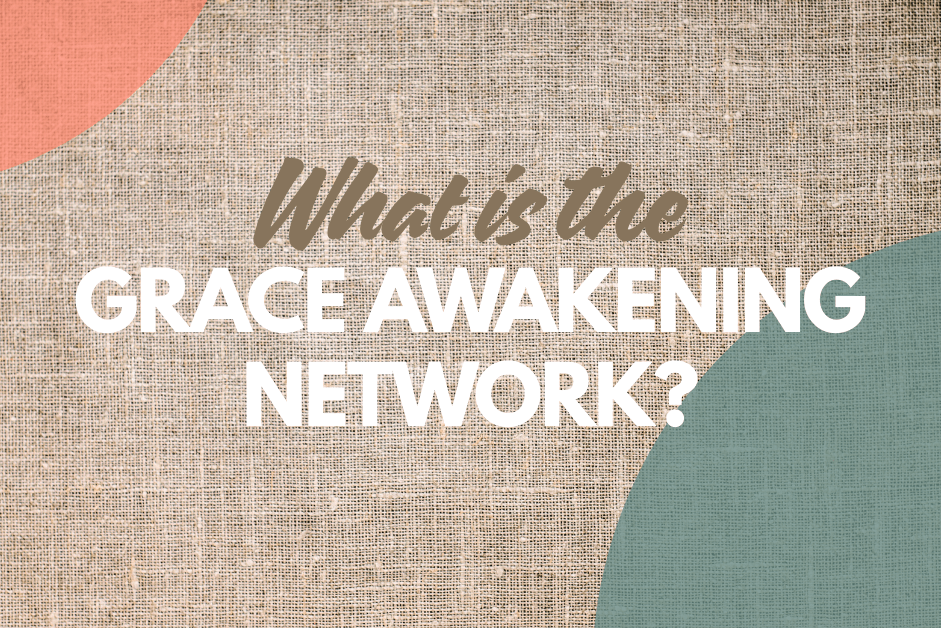Written for GanTV.com by host Tony Myers
Grace: The Power to Change the World
There was once a man named Daniel who lived in a quiet town, searching for peace amidst the storms of life. He had grown up hearing sermons and teachings about “grace,” yet something about his faith felt hollow. The world seemed as chaotic as ever, his struggles unyielding, and his prayers unanswered. Despite all the encouragement to “rest in grace,” Daniel found himself weary, powerless, and increasingly disillusioned.
One day, Daniel stumbled upon an old, dusty book in his church’s library. Its cover read: “Grace: The Power to Change the World.” Intrigued by the title, he sat down to read. Little did he know, his understanding of grace—and his life—was about to be radically transformed.
The Trap of Philosophical Grace
Daniel had long embraced what he now recognized as Philosophical Grace—a watered-down version of the real thing. It had been comforting at first. He had been taught that grace was God’s love, freely given, and that it meant he didn’t have to strive for God’s favor. It felt like a warm blanket on a cold night. But as the years passed, he noticed that this “grace” didn’t seem to address his deeper struggles or empower him to overcome life’s challenges.
Daniel remembered his friend Sarah, who had also leaned into this idea of grace. She often spoke of “letting go and letting God,” yet her life remained plagued by insecurity and broken relationships. She had resigned herself to believing that grace simply meant enduring her hardships with a sense of divine approval.
As Daniel reflected, he realized that Philosophical Grace had brought him—and others he knew—into a state of passive resignation. It validated powerlessness, encouraging him to accept life as it was instead of empowering him to change it. It allowed him to feel loved but left him unequipped to walk in the fullness of that love.
This kind of grace felt abstract, intangible, and ultimately ineffective. It asked nothing of him, gave little in return, and left him yearning for more.
A Revelation of True Grace
As Daniel read further into the book, he encountered a startling revelation: Grace is not merely God’s favor; it is His power. It is not abstract or passive but the dynamic force of His resurrection life, gifted freely to those who believe in Christ Jesus.
The author of the book described how Jesus’ sacrifice on the cross didn’t just pay for sin; it imparted a new kind of life—His very own life—into those who received Him. This grace carried the same power that raised Jesus from the dead, enabling believers to walk in dominion, cultivate life, and restore the world around them.
Daniel’s heart began to race. This was a grace he had never been taught—a grace that wasn’t merely for emotional validation but for tangible transformation.
The book highlighted the ancient understanding of grace as chen, which meant divine empowerment to fulfil one’s purpose. In the Hebrew context, grace was always active, not passive. It was the fuel by which God’s people carried out His mission on Earth. Daniel was struck by the contrast between this powerful grace and the weak, philosophical version he had been taught.
The Disadvantages of Philosophical Grace
Daniel could now clearly see the shortcomings of the grace he had known.
- It Validates Powerlessness: Philosophical Grace had left him feeling loved but incapable of overcoming sin, fear, or the challenges of life. It provided no tools for victory.
- It Encourages Passivity: It had taught him to wait for God to change his circumstances rather than empowering him to act in God’s authority.
- It Lacks Tangible Results: While it comforted his emotions, it bore no fruit in his relationships, career, or community. It left him unchanged—and ineffective.
- It Denies Responsibility: It had excused him from stepping into his God-given authority, subtly convincing him that it was enough to simply “exist” in grace.
Daniel realized that this kind of grace, while comforting, was ultimately a trap. It kept him dependent on external validation instead of empowering him to live as a son of God.
The Exponential Advantages of True Grace
As the book continued, it painted a vivid picture of True Grace—the grace that flows from the finished work of Christ. This grace, Daniel learned, was not a mere idea or philosophy but the living, breathing power of God within him. It was the gift of God’s fullness, freely given, enabling him to live as Christ lived.
- Grace Empowers Victory: True Grace gave Daniel the power to overcome mental co-dependencies, fear, and every obstacle in his path. It wasn’t about enduring; it was about conquering.
- Grace Cultivates Life: Just as Adam was tasked with cultivating the Garden of Eden, grace empowered Daniel to cultivate life in his relationships, career, and community.
- Grace Restores Heaven and Earth: The grace of Christ wasn’t just for his personal benefit; it was the force that restored the harmony of creation. Daniel was called to be a co-laborer with Christ, bringing Heaven to Earth.
- Grace Produces the Fruit of the Spirit: Unlike Philosophical Grace, which allowed him to remain stagnant, True Grace bore tangible fruit—love, joy, peace, patience, kindness, and more.
- Grace Releases Resurrection Power: The same power that raised Jesus from the dead now dwelled in Daniel, enabling him to heal the sick, restore the broken, and walk in supernatural authority.
As Daniel absorbed these truths, his spirit came alive and his heart burned. This was the grace he had been searching for—not a grace that excused his weaknesses but one that empowered him to rise above them.
Daniel’s Transformation
Daniel closed the book, overwhelmed with gratitude and awe. He knelt in prayer, not to ask for more grace, but to thank God for the grace he already had.
“Lord,” he prayed, “I see now that Your grace is more than I ever imagined. It’s not just Your favor; it’s Your power. Help me to walk in this grace—to cultivate life and keep it, to rule over chaos, and to bring Your Kingdom into every corner of my world.”
From that day forward, Daniel’s life changed dramatically. He no longer saw himself as a powerless victim of life’s circumstances. He began to step into the fullness of his identity in Christ, using God’s Grace and Wisdom to transform his relationships, his work, and his community.
His friend Sarah noticed the change and asked him what had happened. Daniel shared the revelation of True Grace, and soon Sarah, too, began to walk in the resurrection power of Christ. Together, they became catalysts of change, spreading life and hope wherever they went.
The Call to Awaken
Beloved, Daniel’s story is not unique. Many today live under the shadow of Philosophical Grace, finding comfort but no power. But True Grace is available to all who believe. It is the free gift of God’s fullness, enabling you to cultivate life, restore Heaven and Earth, and walk in victory.
Will you awaken to this grace? Will you step into the power of His resurrection and change the world? The choice is yours—but the gift is already given.
Step into His grace, and let His life flow through you and be revealed dramatically. Amen.
Watch Tony and Co-host Zane Pierre on The Miraculous Gospel of Healing












